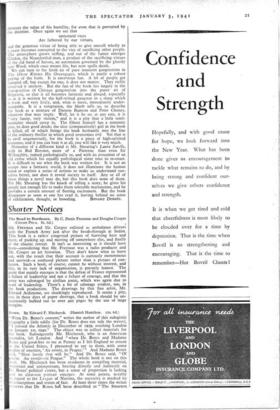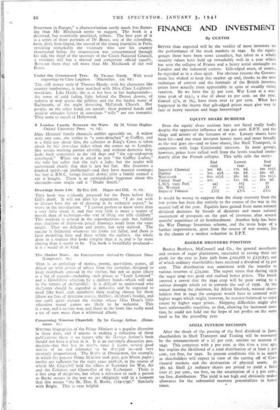Benes. By Edward F. Hitchcock. (Hanish Hamilton. 12s. 6d.)
" WITH Dr. Benes's consent," writes the author of this eulogistic biography a little oddly (for Dr. Benes does not rule the waves), " I crossed the Atlantic in December of 1939, reaching London on January 1st, 1940." The- object was to collect materials for the book. Subsequently Mr. Hitchcock, who is an American journalist, left London. And " when Dr. Benes and Madame &nes said good-bye to me at Putney as I left England to return to the United States, I piesumed to say to them, with some isplay of emotion, ' Au revoir, in Prague.' " And Madame Benes said, " How lovely that will be." And Dr. Benes said, " Of ourse. Au revoir—in Prague." The whole book is not on this evel. Mr. Hitchcock has been assiduous in compiling material, mportant and unimportant, bearing directly and indirectly on r. Benes' political career, but a sense of proportion is lacking nd no clear-cut portrait emerges. At some points, notably n regard to the League of Nations, the narrative is marked by .sconceptions and errors of fact. At least three times the writer bserves that Dr. Bones hag been described as "The Smartest
Statesman in Europe," a characterisation surely much less flatter- ing than Mr. Hitchcock seems to suggest. The book is a deserved, but essentially uncritical, tribute. The best part of it is a series of three portraits of Dr. Benes, one of the schoolboy, keen, alert, firm-lipped, the second of the young journalist in Paris, revealing remarkably the visionary who saw his country resurrected before the resurrection was consummated through his aid; the third of the secretary of the Czech National Council, a visionary still but a shrewd and competent official equally. Between them they tell more than Mr. Hitchcock of the real Benes.































 Previous page
Previous page